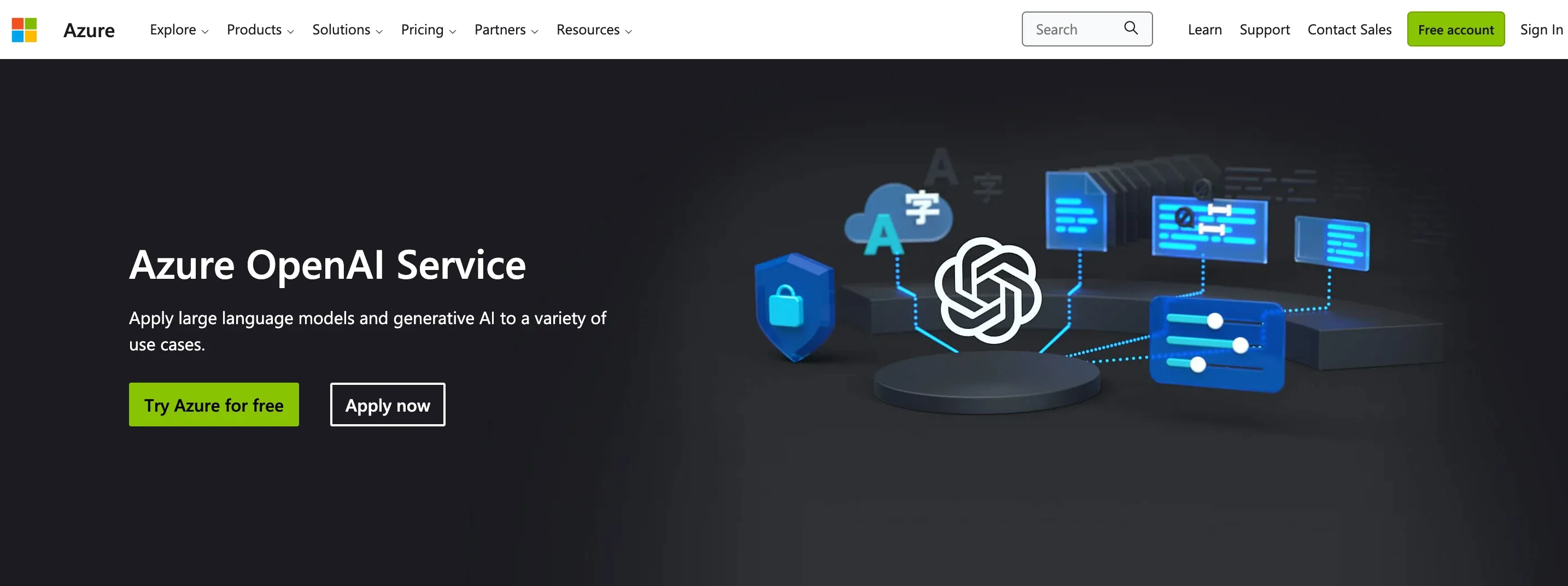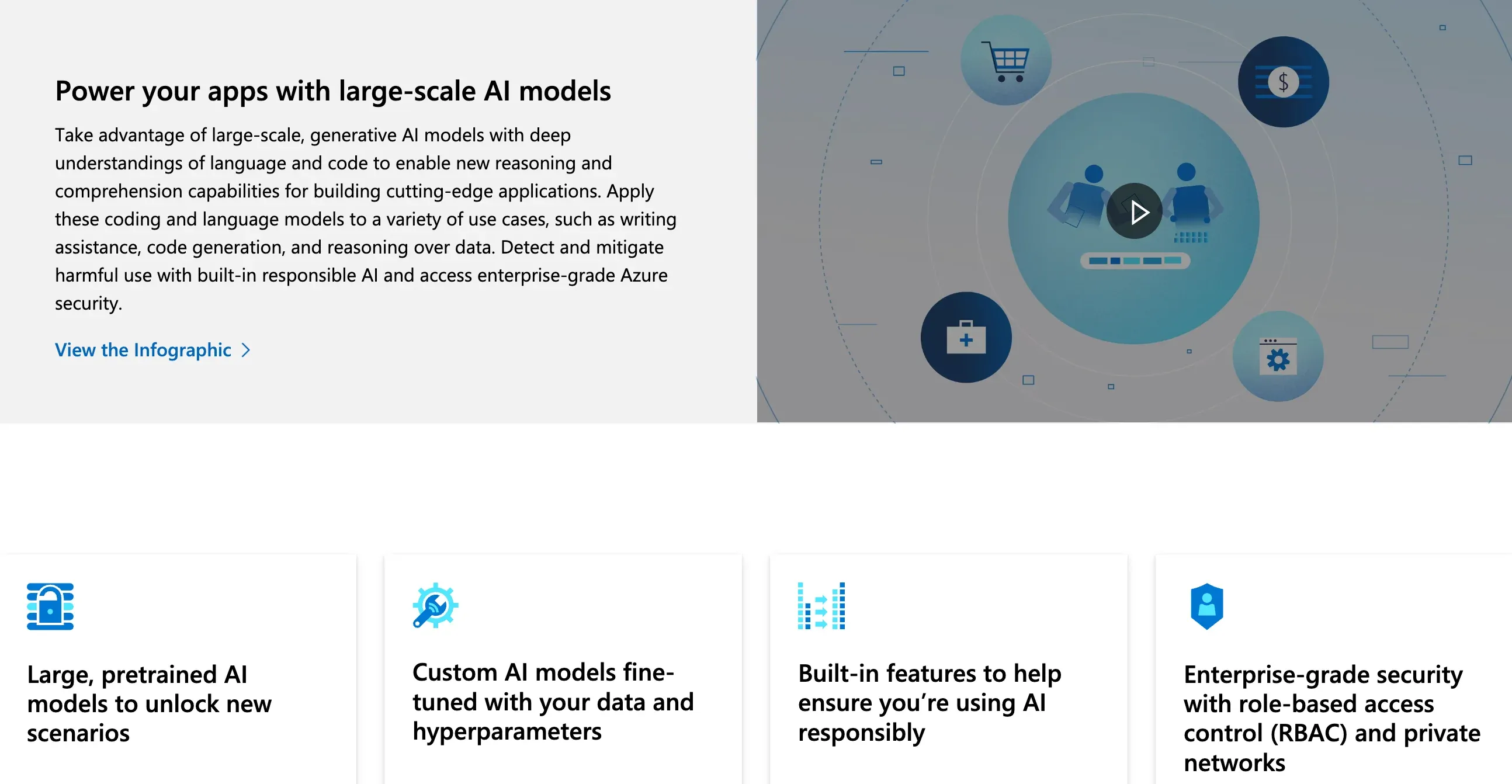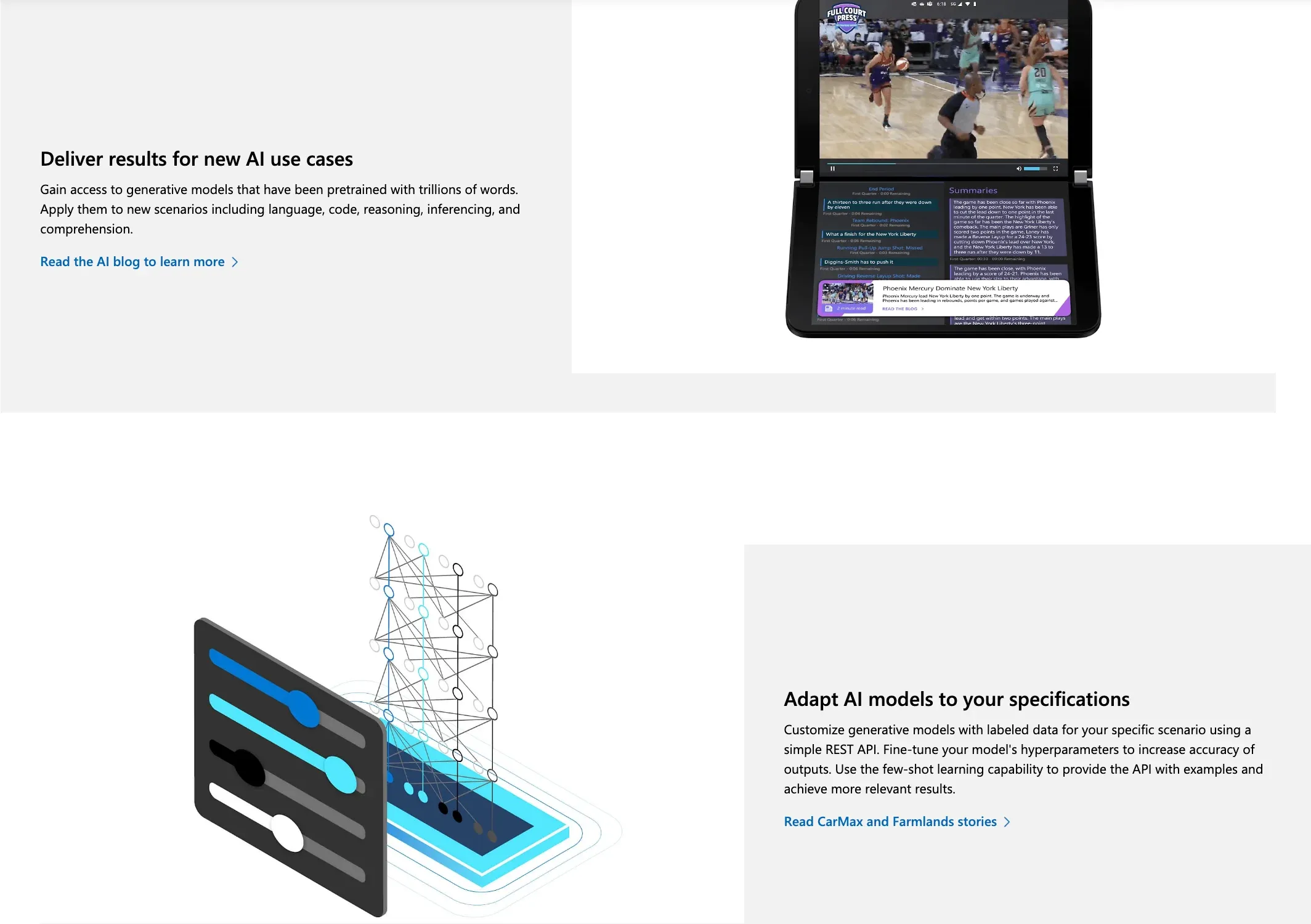Imagine a digital playground. A sandbox where you can create anything, test ideas, scale to meet demands, and pay only for what you use. This playground is real. It's called Azure, Microsoft’s cloud platform.
Now let's throw a curveball. What if we said that the potential benefits of Azure go way beyond what the surface suggests? In fact, the real magic lies in knowing how to navigate this playground to suit your unique needs.
Azure can be like navigating a fun maze. It's thrilling, challenging, and packed with hidden rewards. But, as with any maze, it helps to have a map. That's where this guide comes in.
This isn't just about telling you what Azure is or how it works. This is about bridging the gap between an abstract, high-tech concept and its practical, bottom-line benefits for your business.
We're here to unpack Azure for you – to give a friendly tour of its diverse digital landscape, to deep dive into interesting alleyways like pricing, cost-saving, and platform wars.
Welcome to your Azure expedition. Let's make it a fun, insightful journey together!
An Overview of Microsoft Azure
Microsoft Azure, often known simply as Azure, is a cloud computing platform that offers a wide range of features and services. This publicly available tool by Microsoft uses the power of cloud computing to help businesses grow and manage their operations more effectively.
You can think of Azure as a workshop equipped with all the tools you could ever need to build your business in the cloud.

What makes Azure unique?
Here's the headline - Azure isn't just another cloud platform, it's 'Azure Microsoft.' What does that mean? While cloud platforms are plentiful, Azure stands out. Why? Because Microsoft, a trusted name in technology, creates and manages it. Having a business giant behind this cloud platform gives it credibility that others may lack.
Azure excels in its flexibility. It grants its users the ability to pick and choose from an entire menu of services. Each service is a tool, and you can use these tools in any number of combinations. Here's the best part - you only pay for what you use!
One more thing that sets Azure apart is its user-friendly nature. It's widely considered a great option for first-time cloud users. Microsoft provides a lot of resources about 'what is Microsoft Azure,' making it easy for anyone new to the tech to get up to speed.
Understanding Azure's fundamental features and goals
Let's talk 'Microsoft Azure fundamentals.' Azure's whole approach is about providing powerful but accessible cloud-based solutions. The big idea behind Azure is allowing almost any company in any field to make the most of the cloud.
One such feature is the growth-on-demand aspect. Think of it as an expandable backpack. If you need more space, Azure provides it. This scalability allows any business, big or small, to grow without worries about server capacity.
Then there’s Azure's support for numerous programming languages. You'll never have to limit yourself to specific languages or platforms. Azure gives you all the options so you can use what works best for you.
Finally, there’s Azure’s commitment to data protection. The platform is set up to keep every byte of data secure and backed up. No matter 'what is Microsoft Azure used for,' data loss is not a concern!
Case study of companies who have benefitted from Azure
Okay, enough of telling you how great Azure is. Now, let's show it. Take Johnson Controls, for instance. They wanted to boost their efficiency but things like data oversights were slowing them down. By tapping into 'Microsoft Azure Services,' they were able to streamline their data management. Using Azure's Internet of Things (IoT) Hub, they connected all their equipment to the cloud. Results? Faster data handling and delighted staff.
There's also the case of Geico. No stranger to large data volumes, the insurance giant needed a way of making sense of all their raw data. Cue Azure's Data Lake Analytics. They rode the Azure wave, leading to simpler and quicker data analysis.
So, whether you're a large corporation or a small business just getting started, Azure has a way to help you out.

Exploring Microsoft Azure Services
So, we know what Azure is. Now let's find out what it can do for your business, shall we? Azure is like a Swiss Army knife of features and services for cloud computing, and we'll cover some of the standout ones. Buckle up and get ready to explore 'Microsoft Azure services!'
A Walkthrough of The Most Noteworthy Features
Alright, Azure is packed with a ton of cool features. We've picked a few favorites to highlight:
- Azure Virtual Machines: Need to create virtual environments? These VMs let you run applications at scale on Windows or Linux without the headache of maintaining infrastructure.
- Azure App Services: Web app, mobile app, or API? Just pick a plan and then build, launch, and scale your app in the cloud.
- Azure Functions: This serverless computing feature makes it easy to create event-driven applications. Just pay for the compute time you use.
- Azure DevOps: Your one-stop shop for all things DevOps. Make your development and deployment process a breeze with this comprehensive suite of tools.
- Azure SQL Database: A high-performance, fully managed relational database that easily scales to meet the needs of any app.
- Azure Kubernetes Service: Docker container orchestration made simple! Manage and scale your containerized apps with just a few clicks.
Now you know some of the standout 'Microsoft Azure services.' But don't worry, there are plenty more where these came from!
Suggested Reading: Why Microsoft Azure is also know as PaaS?
Role of Azure Services in Different Industries
Not just for tech giants anymore! These days, companies from all industries are benefiting from Azure. Let's take a look at a few:
- Healthcare: Azure's secure and reliable cloud storage can protect sensitive patient data. Plus, its artificial intelligence (AI) capabilities can help improve patient outcomes.
- Retail: From inventory management to customer relationship management (CRM) systems, Azure can streamline retail operations and increase efficiency.
- Manufacturing: Monitor equipment in real-time, optimize supply chains, and boost productivity with IoT solutions powered by Azure.
- Education: Azure enables remote learning, collaboration among educators, and virtual classrooms, revolutionizing the way we teach and learn.
- Government: Public sector institutions are using Azure for data storage, AI-driven analysis, and process automation, making life easier for citizens.
Suggested Reading: Top Benefits of Microsoft Azure for Your Business
How to Maximize Benefits from Azure Services - Tips and Tricks
Wondering how to make the most of Azure? Check out these tips and tricks to turbocharge your Azure game:
- Start with a free trial. Explore Azure's offerings at no cost before committing to a plan. This way, you'll get a feel for the platform and learn firsthand which services are right for you.
- Plan before you deploy. Good planning can save time and money. Prioritize your needs and then determine which Azure services best align with your objectives.
- Stay budget-conscious. With Azure's pay-as-you-go model, it's essential to manage costs effectively. Keep track of usage and monitor your expenses regularly to avoid any nasty surprises.
- Keep security top of mind. Use Azure Security Center to get an overview of the security posture of your cloud environment and maintain the best practices for keeping sensitive data safe.
- Stay informed. Stay up to date with Azure's documentation, blogs, and support forums. Regularly review new features, enhancements, and any changes to pricing. Staying updated will let you make more informed decisions about your Azure usage.
Remember, practice makes perfect. The more you use Azure, the better you'll get at squeezing every drop of value out of its suite of services. Sky's the limit!
Understanding Azure Pricing and How To Save Money
Let's talk numbers. Azure can open up a world of opportunities for your business. But how much does that world cost? And how can you get the most bang for your buck? In this section, we'll dive into 'Azure pricing' and some savvy cost-saving tips.
Azure operates on a pay-as-you-go model. That means you only pay for what you use. While that sounds simple, the real-world application can get a bit more complex. Azure's pricing depends on several factors, including the types of services you use, how much you use them, and the specific pricing plan you sign up for.
Here's an overview to give you a rough idea of Azure costs. Virtual Machines can range from mere pennies per hour for basic instances to a few dollars for more high-powered options. Storage can cost from a few cents per GB per month, and bandwidth pricing typically comes in tiers, starting in the single-digit dollars for the lowest tier.
It's important to understand that Azure uses a consumption-based model. This means you are billed for the exact resources you consume - no less, no more. It's similar to your utility bill; you're billed for the electricity you use, not for the maximum capacity the power company could provide. It's a fair system, but it relies a lot on good management.

So how do you save money on Azure?
First off, 'Azure cost management' should be your mantra. It's a tool provided by Azure that can give you a comprehensive look at your spending and helps you budget effectively. Keep close tabs on your usage and make adjustments wherever necessary.
Secondly, take advantage of reserved instances. If you know you’ll be needing certain services for a longer time, reserve them in advance. It can save you up to 72%.
Don't be afraid to downsize either. If you're not fully utilizing a certain service, scale it down to a less costly option. And remember to turn off any services you're not using, like virtual machines during non-business hours. An unused, running VM is a quick way to rack up unexpected costs.
Also, use Azure's spending caps and budget alerts. A spending cap can keep your costs from exceeding a certain amount, while budget alerts can keep you informed so there are no surprises when the bill comes.
Lastly, learn. Azure has tons of resources available about its pricing and how to manage it. Read up on those, educate your team, and continue to learn. Clear knowledge of Azure pricing could be the most efficient cost-saving measure yet.
In sum, Microsoft Azure is like a vast amusement park of cloud services. How many rides you get on, for how long, and at what intensity level, is totally up to you, and your ticket price is calculated accordingly. Be a smart park-goer, plan your trip well, know when to take a break, and you can have a budget-friendly yet thrill-packed Azure journey.
Azure Vs AWS - The Battle of The Giants
It's time for the main event, everyone! In the blue corner, we've got Microsoft Azure, and in the red corner, it’s Amazon Web Services (AWS). They're two of the biggest players in the cloud platform game, but which one is right for you? Let’s find out!
First off, both Azure and AWS offer a comprehensive range of services covering computing power, storage, and databases, to name a few. They both operate on a pay-as-you-go model. But, even so, they have some major differences.
When it comes to the number of services, AWS takes the cup. It's been around longer and offers a larger variety of services. But remember, more doesn't always mean better. Azure is catching up fast, and is knocking it out of the park in certain areas, like integrating with other Microsoft products. If your business is already a Microsoft enthusiast, Azure might be the way to go.
Let’s talk pricing. Azure and AWS have similar pricing models, but their costs can vary greatly depending on the specific services. AWS pricing can be a bit more complicated, while Azure offers cost-saving features like combined service packages or discounted rates for long-term contracts. It pays to study their pricing models closely before deciding.
Now, onto customer service. Microsoft’s support has a stronger reputation than AWS. This might come as a surprise, considering AWS’s perceived dominance. Azure’s support plans are known to be more flexible and comprehensive with faster response times.
As for global presence, AWS has the edge. It operates in more countries and more availability zones within those countries. But again, Azure is not far behind. Plus, Azure has an upper hand when it comes to high-speed fiber networks and content delivery network (CDN) endpoints.
Lastly, in the matter of accessibility, AWS might be a touch more developer-friendly, particularly for Linux developers. But Microsoft’s Azure holds its own, especially with Windows developers or businesses already invested in Microsoft software. Azure’s interface is also considered more intuitive, making it a good candidate for cloud beginners.
So, who's the victor? Honestly, it's a tough call. The choice between Azure and AWS comes down to what suits your business best. Look at your company’s current setup, your future goals, your team’s expertise and, of course, your budget. The cloud platform that checks off the most boxes for your business should be your winner.
Remember, there's no one-size-fits-all answer here. Both Azure and AWS are massive cloud platforms with a lot to offer. Winning here isn't about choosing the one that’s more popular. Instead, it’s about finding the cloud platform that fits like a glove for your business - and running with it, all the way to success!
Conclusion
Well, that's a wrap on our high-level guide to Azure. It's clear that this powerful platform has a lot to offer businesses of all sizes and industries. The key is to understand your company's needs and choose the services that align best with your goals.
Don't forget that saving money on Azure means staying informed, setting boundaries, and managing your resources effectively. And if you find yourself torn between Azure and AWS, take the time to assess which giant suits your organization best, based on your specific requirements and team proficiencies.
At the end of the day, it's all about selecting the cloud platform that empowers your business to reach its full potential. Trust your instincts, stay informed, and here's to your success with Azure!
Frequently Asked Questions (FAQs)
Does Azure support my programming language of choice, like Python or JavaScript?
Yes, Azure supports a broad range of programming languages, including Python, JavaScript, .NET, PHP, Java, and more.
How secure is my data in Azure?
Azure provides a wide array of security measures, including encryption, firewalls, and compliance with global standards.
What happens if you exceed Azure budget?
Azure allows you to set up alerts or even auto-shutdowns based on your spend to prevent any budget overrun.
Can one migrate existing applications to Azure?
Yes, Azure provides tools and services to assist in the migration of your existing applications and data.


